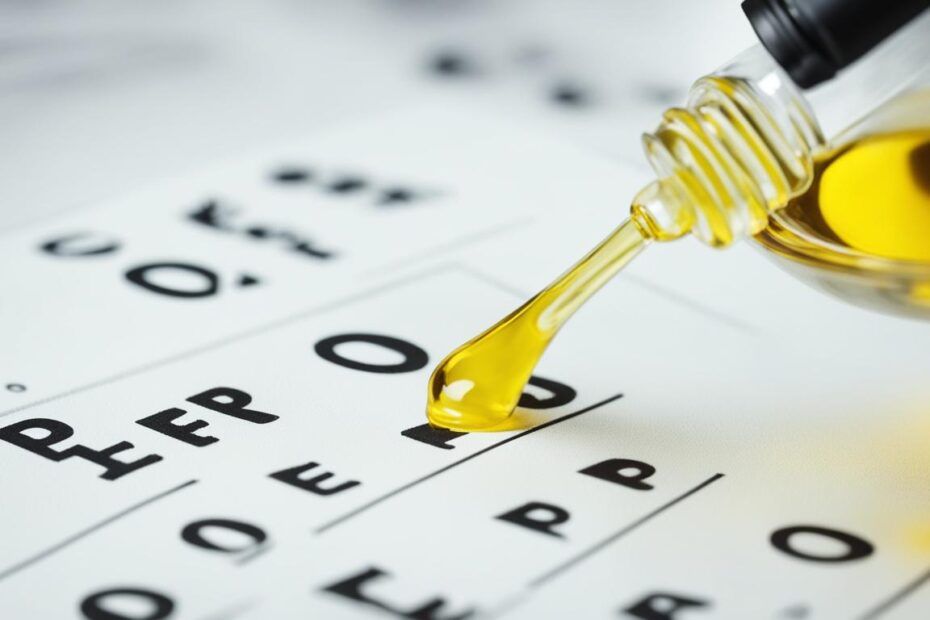Ophthalmologists are warning against using castor oil as a treatment for vision problems, despite claims circulating on TikTok and social media. Castor oil, a type of vegetable oil extracted from the castor bean plant, has been used for various purposes over the years, including as a laxative and a moisturizer.
Some TikTokers claim that rubbing castor oil on the eyelids, eyelashes, and under the eyes can help treat dryness, floaters, cataracts, poor vision, and even glaucoma. However, ophthalmologists emphasize that there is little scientific evidence to support these claims.
While castor oil is generally safe as a laxative, it can have severe side effects like vomiting and dizziness, making it unsuitable for widespread use. Moreover, castor oil products found on store shelves are not meant for use on the eyes and can contain ingredients that may cause irritation or infection.
Limited research on eye drops formulated with a low concentration of castor oil has shown some benefits for dry eyes and eyelid inflammation, but experts caution about the poor quality of the studies. Overall, ophthalmologists recommend seeking professional advice from an ophthalmologist rather than relying on castor oil for eye health.
Key Takeaways:
- Claims that castor oil can treat various eye problems lack scientific evidence.
- Using castor oil on the eyes can have severe side effects and may cause irritation or infection.
- Research on castor oil eye drops is limited and of low quality.
- Consulting with an ophthalmologist is the best approach for addressing eye health concerns.
The Potential Risks and Dangers of Castor Oil for Eyes
Using castor oil on and around the eyes can potentially lead to several risks and dangers. The application of castor oil directly to the eyes can cause eye irritation, reduced tear quality, blurred vision, and allergic reactions. In some cases, it may even block the lubricating glands in the eyelid, resulting in symptoms of dry eye.
It’s crucial to understand that castor oil products available in stores are not specifically designed for eye use. These products may contain dyes, preservatives, fragrances, or other ingredients that can cause irritation or infection when applied near the eyes.
“Castor oil has no effect on conditions like cataracts or glaucoma that occur inside the eyeball, as it does not penetrate the eye or address underlying issues.”
To emphasize, while castor oil can function as a moisturizer for the skin, it is not a recommended or proven treatment for eye-related problems. Seeking guidance and professional advice from an ophthalmologist is essential to ensure eye health and safety rather than relying on castor oil.
| Risks and Dangers of Castor Oil for Eyes | Precautions |
|---|---|
| Eye Irritation: Direct application of castor oil to the eyes can cause irritation, redness, and discomfort. |
|
| Reduced Tear Quality: Castor oil can affect the composition and quality of tears, leading to dry eye symptoms. |
|
| Blurred Vision: Application of castor oil near the eyes may cause temporary blurring of vision. |
|
| Allergic Reactions: Some individuals may experience allergic reactions to castor oil, such as itching, swelling, or redness. |
|
| Incorrect Product Use: Over-the-counter castor oil products are not formulated for safe use in or around the eyes, potentially containing ingredients that can cause further eye irritation or infection. |
|
While castor oil has known moisturizing properties, it does not provide a proven solution for eye-related issues. To ensure optimal eye health, it is always recommended to consult with an ophthalmologist for a proper diagnosis and appropriate treatment options.
Conclusion: Seeking Professional Advice for Eye Health
In conclusion, while castor oil may have multiple uses and benefits, it is not recommended for use on or near the eyes. The claims made on TikTok and social media platforms about the effectiveness of castor oil for treating vision problems are not supported by scientific evidence. Applying castor oil to the eyes can lead to eye irritation, reduced tear quality, blurred vision, and allergic reactions.
It is also important to note that the bottles of castor oil available in stores are not sterilized and may contain ingredients that can cause irritation or infection. Instead of relying on castor oil, it is crucial to consult with a trusted ophthalmologist for any concerns or issues related to eye health. Professional advice and appropriate treatments can help ensure the safety and well-being of your eyes.
Remember to prioritize eye health by following recommended practices such as regular eye exams, maintaining good eye hygiene, and protecting your eyes from potential harm.
FAQ
Is it safe to use castor oil on your eyes?
No, it is not safe to use castor oil on your eyes. Applying castor oil to the eyes can lead to eye irritation, reduced tear quality, blurred vision, and allergic reactions.
Can castor oil cause eye damage?
Yes, castor oil can potentially cause eye damage. When applied directly to the eyes, it can lead to eye irritation, reduced tear quality, and blurred vision.
What are the potential risks of using castor oil on eyes?
The potential risks of using castor oil on eyes include eye irritation, reduced tear quality, blurred vision, and allergic reactions.
Are there any precautions when using castor oil for the eyes?
Yes, it is important to avoid using castor oil on or near the eyes to prevent potential risks and dangers. Consult with an ophthalmologist for proper eye care and treatment.





